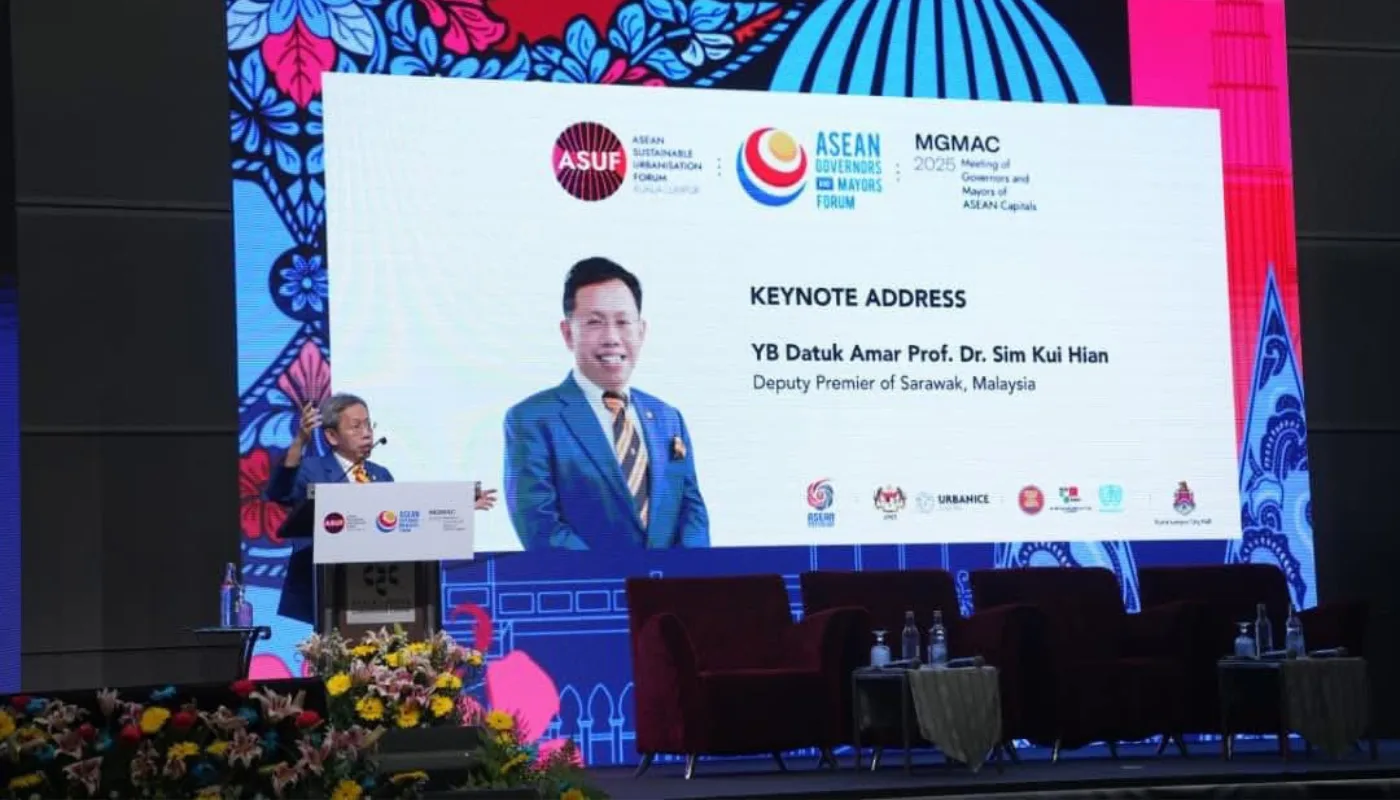KUALA LUMPUR – Sarawak has reaffirmed its commitment to ensuring that urban development remains closely tied to the preservation of cultural heritage, emphasising that heritage is a vital identity that cannot be separated from the people of the state.
Deputy Premier and Minister of Public Health, Housing and Local Government, Datuk Amar Professor Dr Sim Kui Hian, said this approach is central to Sarawak’s Post-COVID-19 Development Strategy (PCDS) 2030, which prioritises balanced progress across economic growth, environmental sustainability and social inclusion.
“Modernisation of cities must go hand in hand with cultural preservation, which forms an essential part of building the nation of Sarawak,” he said during his keynote address on *Health and Sustainable Cities: Sarawak’s Experience* at the ASEAN Sustainable Urban Development Forum (ASUF) 2025 held at the Kuala Lumpur Convention Centre on Thursday.
Dr Sim noted that like other ASEAN cities, Sarawak faces challenges in transportation, housing, healthcare and education. However, the state is pursuing solutions through international initiatives such as the WHO’s Age-Friendly Cities, UNICEF’s Child-Friendly Cities, and zero-carbon commitments, while maintaining its own cultural values and heritage as part of urban progress.
He highlighted Sarawak’s “Healthy City” journey, which began in Lundu in 1994 and has since expanded to Kuching and Sibu, both now members of the WHO Age-Friendly Cities network. This is supported by the Sarawak Healthy City Strategy and the state’s Public Health Master Plan 2050, which aims to bridge healthcare gaps under the Malaysia Agreement 1963 (MA63).
Other initiatives include the One Health Approach—integrating human, animal and environmental health—alongside Smart City programmes that deploy Internet of Things (IoT) technology, artificial intelligence (AI) and S Pay Global for mobility, safety and flood management. Sarawak is also investing in public parks, cycling tracks, community gardens and inclusive facilities such as autism-friendly spaces, OKU amenities and eco-toilets.
On housing, the state has rolled out affordable schemes including rental subsidies, home deposit programmes and longhouse loan assistance, designed to support diverse communities.
Dr Sim also emphasised that shaping ASEAN’s sustainable future requires collective action from governments, local leaders and communities, in line with the ASEAN Community Vision 2045. He urged cities to focus on inclusive transitions, digital connectivity and the Sustainable Development Goals while using regional platforms like ASUF, the ASEAN Governors and Mayors Forum, and the ASEAN Governors and Mayors Meeting to share and scale local initiatives.
ASUF 2025 attracted more than 9,000 participants from 66 countries, bringing together city leaders, experts and community representatives in 97 sessions featuring 391 speakers. The opening ceremony was officiated by Deputy Prime Minister Dato’ Sri Fadillah Yusof, while the closing was led by Housing and Local Government Minister Nga Kor Ming. The event was hosted by Kuala Lumpur City Hall (DBKL) and organised with URBANICE Malaysia, UN-Habitat and UCLG ASPAC.





